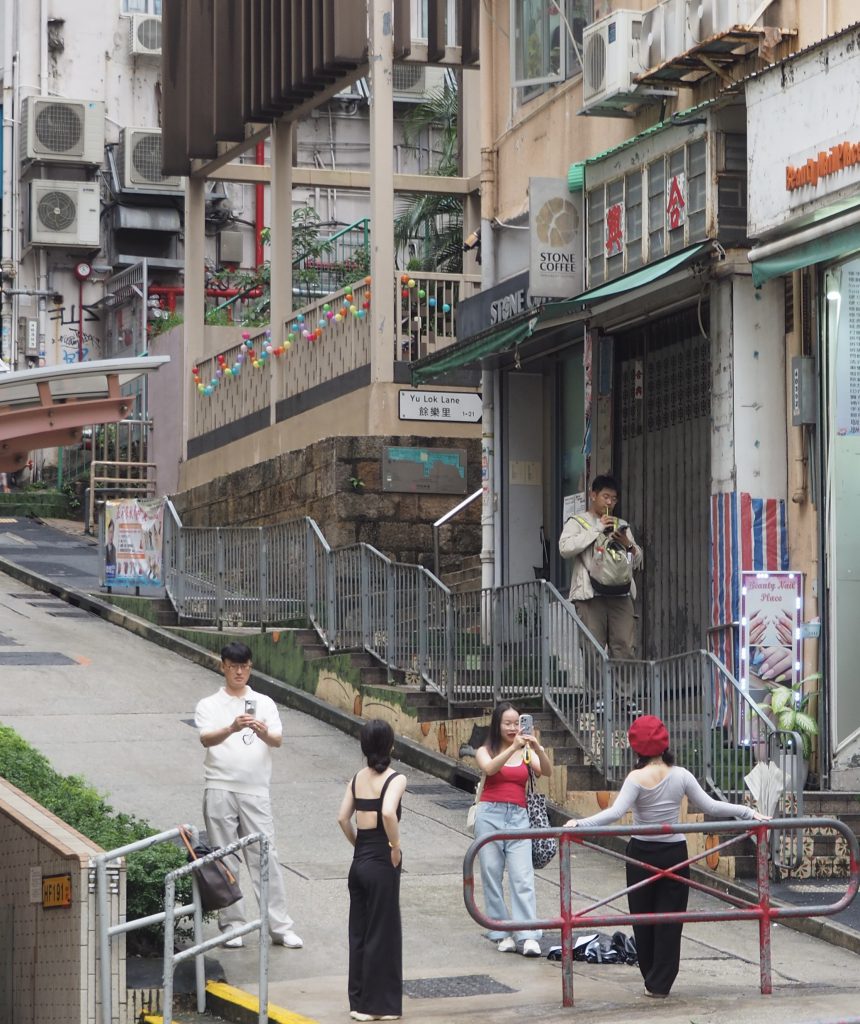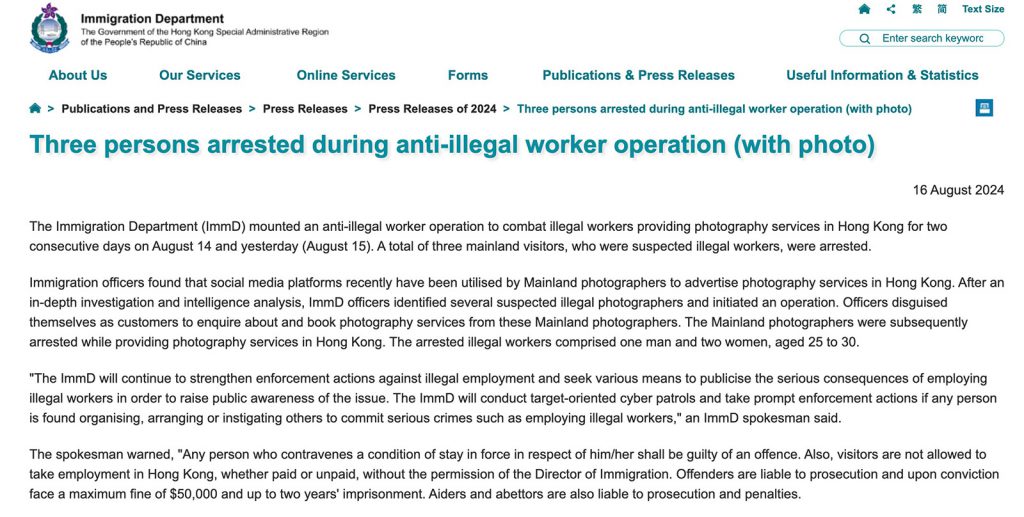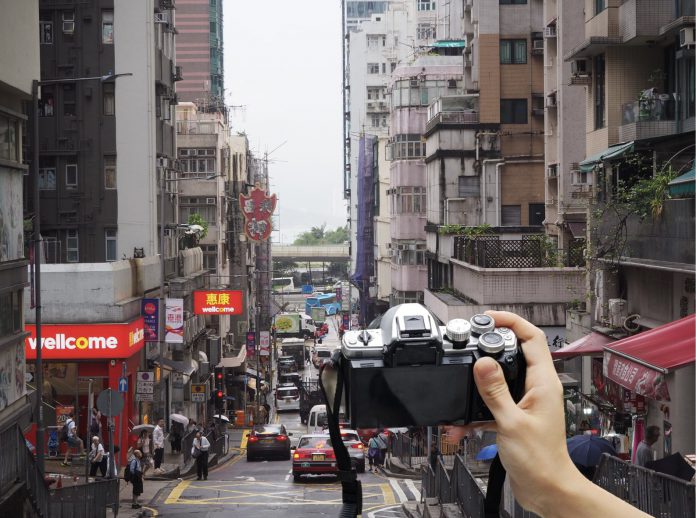Mainland photographers work in Hong Kong without permit.
By Celina Lu
Mainland photographer Zhang Yaqi puts up posts about offering photography services in Hong Kong on Xiaohongshu, a widely used social media platform in mainland China, under the nickname Zhang Zhang.
Posing as a potential customer, a Varsity reporter spoke to Zhang on Xiaohongshu in September. Zhang then requested to continue the conversation with WeChat, China’s main instant messaging application, for further consultation.
“The price for shooting in Hong Kong is RMB ¥499 (US $70), which includes nine retouched photos and all raw photos,” she says in a chat.
Zhang offers portrait photography for couples who are getting their marriage certificates. She also provides portrait photography for solo customers.
She says there is no limit for photo taking time, but each shooting session usually lasts for 1.5 hours.
Zhang charges RMB ¥199 (US $28) in Shenzhen, RMB ¥300 (US $42) cheaper than in Hong Kong.
“Since I live in Shenzhen, the extra charge of RMB ¥300 (US $42) is for transportation fee,” the photographer explains.
According to Zhang’s posts on Xiaohongshu, she has already photographed two couples in Shenzhen and three couples in Hong Kong. In the comments section of her social media account, there were a number of users inquiring about the price of her photo-taking service.
The fees charged by mainland Chinese photographers range from RMB ¥300 to RMB ¥600 (US $42 to US $85) per hour, much cheaper than the usual hourly rate of RMB ¥800 to RMB ¥1500 (US $113 to US $214) charged by Hong Kong photographers per hour.

A Hong Kong photographer who prefers to be named as YY also posts on Xiaohongshu to hunt potential customers.
YY charges RMB ¥2800 (US $399) for photography services. She is a solo photographer specialising in single-portrait photography.
“If you want to confirm the shooting schedule, you need to pay half of the full fees as a deposit and settle the final payment after the shoot,” YY says.
The Hong Kong photographer says the whole shooting process lasts for two hours, and customers can get 12 retouched photos and all raw photos.
Social media posts about providing photography services in Hong Kong are widely circulated on Xiaohongshu. Some of these service providers are Hong Kong photographers, but most of them are mainland photographers who offer competitive fees.

Although this kind of post is common in Xiaohongshu, it is illegal for mainland Chinese photographers to work in Hong Kong.
The Immigration Department launched two enforcement operations against illegal workers providing photographic services in Hong Kong on August 14 and August 15, and arrested a total of three Mainland visitors suspected of engaging in illegal employment.
Officers posing themselves as customers booked photography services from these Mainland photographers. The Mainland photographers were then arrested while providing photography services in Hong Kong.
Speaking in a press conference on October 31, Senior Principal Immigration Officer So Chun-ho said in another joint operation with mainland China authorities and the Immigration Department, 97 people in Hong Kong and 104 in mainland China were arrested targeting a forgery syndicate of Hong Kong identity cards for illegal workers.
Investigators disguised themselves as delivery workers and arrested the recipients of the parcels across various locations in Hong Kong. The investigation started in May 2024 with arrests carried out in July and August.
He explained all the workers had entered Hong Kong legally as visitors. Forged identity cards were delivered to them using courier services in the city.
Investigation found most suspects worked in restaurants or as cleaners, earning between HK$500 (US$64) and HK$1,200 (US$154) a day. It is unclear if the employers know about the workers’ illegal immigration status.
Under the Immigration Ordinance, the maximum penalty for an employer hiring a person who is not lawfully employable will be a fine of HKD $500,000 (US $64,342) and 10 years imprisonment.

“Visitors are not allowed to take employment in Hong Kong, whether paid or unpaid, without the permission of the Director of Immigration. Aiders and abettors are also liable to prosecution and penalties,” an Immigration Department spokesman warns.
“The Immigration Department will continue to strengthen enforcement actions combating illegal employment and publicise the serious consequences of employing illegal workers to raise public awareness of the issue,” the spokesman says.
Edited by Iris Jiang
Sub-edited by Cynthia Chan







































